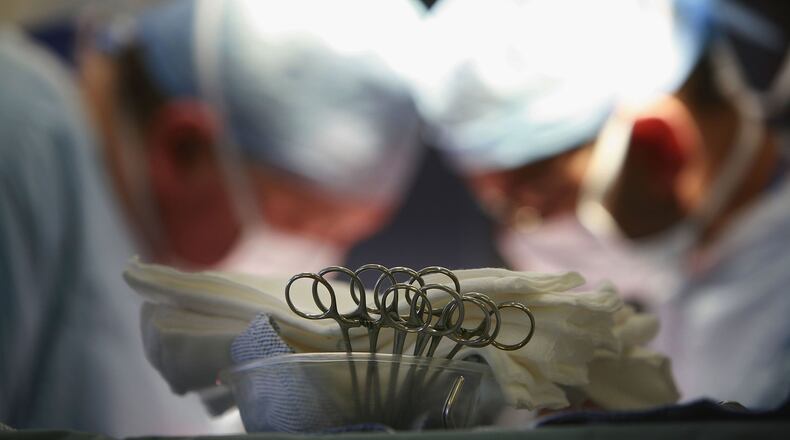Alice Koone and her family loved attending NASCAR events.
But during a race at Talladega Superspeedway in Alabama in 2007, she couldn't walk more than 20 feet without having to stop to rest because her lungs were so damaged. She remembers returning to the camper and thinking that would be the last race she would ever see.
Koone was put on oxygen in July 2007, but didn't seem to be improving. On Sept. 13, 2007, she joined other patients needing an organ donation. Three months after being placed on the list, she received the call that she would receive a lung transplant that day.
"I was so sick that I knew if I didn't get the call within the next month or so that I was at the end," said Koone, who lives in Pine Mountain, Ga.
According to the United Network for Organ Sharing, 22 people die every day waiting for some type of transplant. One organ donor can save up to eight lives and enhance the lives of 50 others. As of April 2016, more than 120,000 individuals were waiting for a transplant, according to UNOS.
Neile Chesnut, a registered nurse at Emory Healthcare and a heart transplant coordinator, said most people don't understand how important it is to become an organ donor. Liver, heart, lungs, kidneys, pancreas and small intestine are among organs that can be donated.
In 2015, the U.S. exceeded 30,000 annual organ transplants for the first time, according to government data.
To become an organ donor, people can change their status to organ donor on their driver's license or fill out the donor card at organdonor.gov.
Chesnut said one of the best parts of working with pre- and post-heart transplants patients includes getting to know the individuals as they wait, sometimes several months, for a transplant.
"I feel like they are my family," said Chesnut, who lives in Atlanta.
Elizabeth Drew works for LifeLink, a non-profit organization that promotes the importance of organ donation and helps recover organs for transplants. She serves as a relationship builder between LifeLink and more than 190 hospitals in Georgia and two counties in South Carolina.
"It's one of the greatest gifts to spend time with a recipient because they love life so much," she said. "They've seen life and how precious it is."
Koone was in desperate need for a double lung transplant due to severe complications with breathing. A year after receiving her transplant at Emory hospital, she wanted to write a "thank you" note to her donor family, but could not go through with it.
"How do you thank somebody for this?" she wondered.
But on her second transplant anniversary, she wrote a letter with multiple pages to the donor family, but otherwise has not been in contact with them.
Now Koone, 54, spends time with her baby grandson and volunteers as a mentor for the Georgia Transplant Foundation.
"Now I'm able to do a lot of the things I thought I would never be able to do again," she said. "We are able to travel, camp, hike and just enjoy life. You are thankful for everyday that you get."
About the Author
The Latest
Featured


